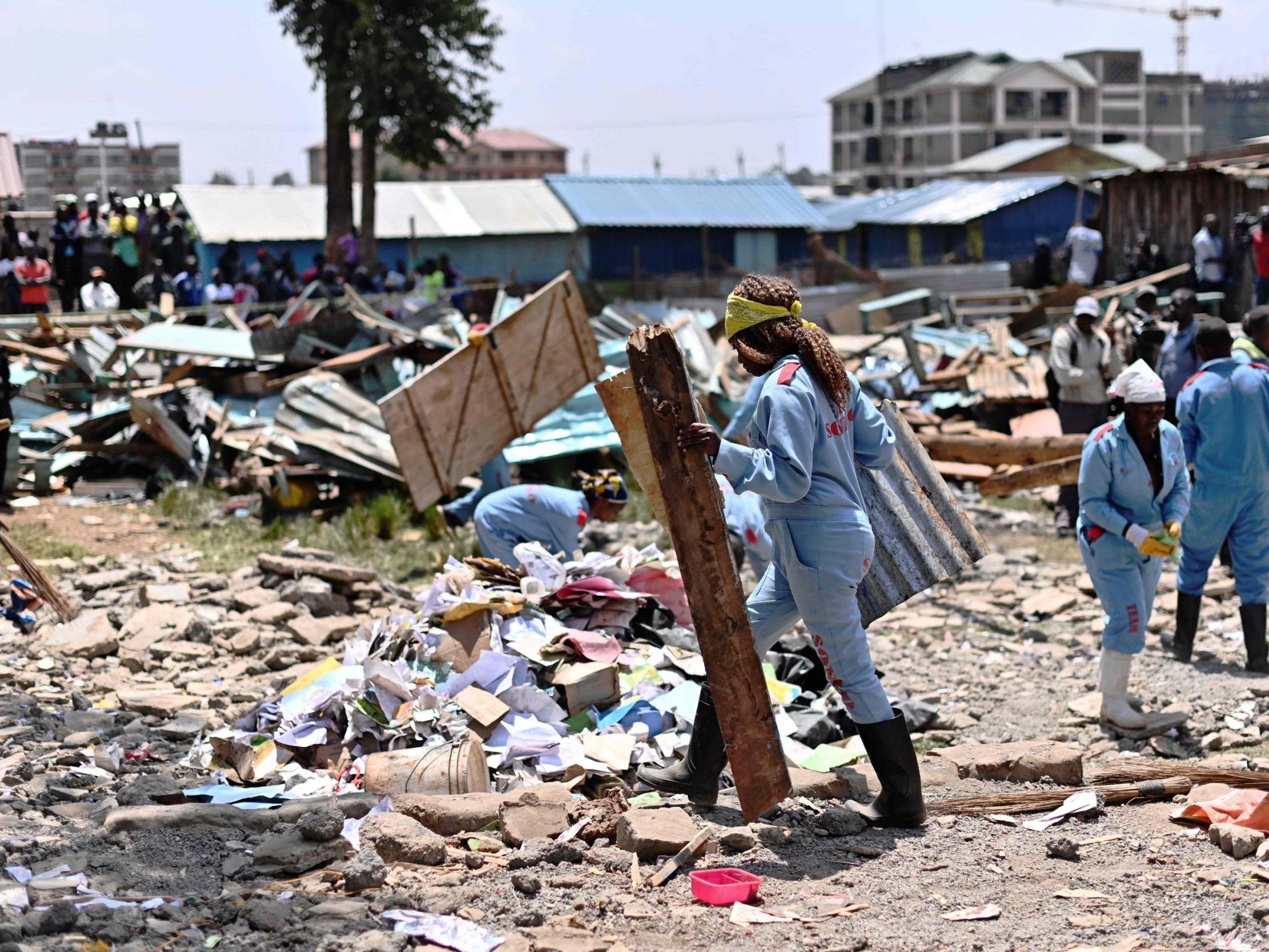Kenya school collapse: Seven dead and 57 injured in Nairobi as classroom caves in
‘The structure may look good, but when the building comes down, you realise it was made of nothing’

Your support helps us to tell the story
From reproductive rights to climate change to Big Tech, The Independent is on the ground when the story is developing. Whether it's investigating the financials of Elon Musk's pro-Trump PAC or producing our latest documentary, 'The A Word', which shines a light on the American women fighting for reproductive rights, we know how important it is to parse out the facts from the messaging.
At such a critical moment in US history, we need reporters on the ground. Your donation allows us to keep sending journalists to speak to both sides of the story.
The Independent is trusted by Americans across the entire political spectrum. And unlike many other quality news outlets, we choose not to lock Americans out of our reporting and analysis with paywalls. We believe quality journalism should be available to everyone, paid for by those who can afford it.
Your support makes all the difference.It was quiet, not yet 7am on Monday, and the students of Precious Talent Top School were in class early to prepare for upcoming national exams. There were neither rain nor high winds – it was a typically beautiful day in Kenya’s capital, Nairobi.
In a split second, however, a wing of the private school collapsed into a pile of rubble and trapped pupils, killing at least seven of them and injuring dozens more, according to city officials.
The tragedy raises questions about Kenya’s enforcement of building codes for schools and apartment complexes, which are often made by private contractors long accused of cutting corners.
“Look at these wires, the stones that were used,” said Peter Livasia, 30, a parent of an unhurt student. “The structure may look good, but when the building comes down, you realise it was made of nothing.”
Rescue equipment didn’t arrive at the school for more than an hour after the collapse. Bystanders used their hands to pull away the rubble and sent injured children to nearby hospitals on the back of Nairobi’s ubiquitous motorcycle taxis. There are 917 students at the school.
When government officials arrived by midmorning, they were greeted with anger.
“I’m sure they must have checked all these structures,” Moses Nyakiongora, director of the National Building Inspectorate, told reporters at the scene. “But we have very many unsafe structures in Nairobi.”
He added that his bureau would conduct an investigation into “why these makeshift structures, which are death traps” are not being properly inspected.
To any contractor who cut corners, Mr Nyakiongora said: “you are a murderer and a conman.”
Anger was specifically directed at the school’s owner, Moses Wainaina Ndirangu.
One teacher, who asked to remain anonymous for fear of losing his job, said Mr Ndirangu had decided to build a second storey on one of the school’s wings to accommodate more students, but that it had been clear that the wood and sheet metal used in the ground floor was not strong enough to support more weight.
“He should have just left the school as it is. Why did he have to put two floors? That was just greed,” said the teacher, as Mr Ndirangu and officials gathered in the school for an emergency meeting. Mr Ndirangu’s lawyer said his client would not be available for comment.
Mr Livasia, the parent, said he paid around £70 per year for his daughter to attend the school, which is above average by Kenyan standards.
The school, which is in a crowded area, had a reputation in the neighbourhood as one where students scored well on exams, and it was drawing more students every year.
Mr Livasia didn’t fault Mr Ndirangu for wanting to take on more students but for not ensuring new construction was done carefully.
“I just want to know, the money we pay, where does it go? The greed is killing our children,” he said.
Washington Post
Join our commenting forum
Join thought-provoking conversations, follow other Independent readers and see their replies
Comments